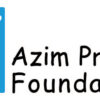No products in the cart.
Your counselor replies
I’m interested in a career in sports and fitness. Please advise. — Sarika Gupta, Lucknow
You can explore a range of careers in the sports and fitness industry such as sports coach, psychologist, scientist, nutrition and diet specialist, personal trainer, sports manager and physical education instructor.
I’m a class XI student determined to make a career in teaching. What are my best study options? — Anushka Goyal, Delhi
Teaching is a noble career choice. If you want to teach in primary school, you should consider the following study options after completing class XII: B.El.Ed (bachelor’s in elementary education); D.El.Ed (diploma in elementary education); and NTT (nursery teacher training). After graduation you become eligible to sign up for B.Ed (bachelor’s in education) programme for teaching in secondary and higher secondary schools. However to become eligible to teach in Central government-run schools, aspiring teachers need to also clear the Central Teacher Eligibility Test, and for employment in state government schools the Teacher Eligibility Test. For college/university level teaching, postgraduates need to write the National Eligibility Test.
Alternatively, you could sign up for the BTC (basic training certificate) programme for assistant teachers.
What are Moocs and why are they so popular? — Nakul Rao, Bangalore
Over the past decade, massive online open courses (Moocs) have emerged as a popular mode of learning with their certification increasingly being recognised by academic institutions and companies worldwide. Moocs allow learners to study online at their own pace and time. The academic courses — designed by some of the world’s top-ranked universities including MIT, Harvard and blue-chip companies such as Microsoft, Linux etc — comprise videos, reading material, and interactive sessions on online forums. Among the most popular MOOCs providers are Edx, Coursera, Udacity, Udemy and Codeacademy
Which higher ed institutions in India offer the best study programmes in finance? — Aman Singh, Gwalior
There are two study routes to qualify as a finance professional in India — an MBA/M.Sc in finance, or through the chartered financial analyst (CFA) programme. Among well-reputed institutions offering these study options are: Jamnalal Bajaj Institute of Management Studies, Mumbai (M.Sc finance); Department of Financial Studies, Delhi University, South campus (MBA in financial management); NMIMS, Mumbai (M.Sc finance); Indian Institute of Finance, Noida (business finance management and postgraduate finance diploma); Xavier School of Commerce, Bhubaneswar (business finance Masters); the Institute of Chartered Financial Analysts, Hyderabad; Securities & Exchange Board of India, Mumbai; Institute of Finance, Banking and Insurance, Bangalore and Indian School of Business and Finance, Delhi (CFA).
Which are the best colleges offering BCA (bachelor’s in computer application) degree programmes in India? — Sumit Deshmukh, Pune
Among the most well-reputed colleges offering high-quality BCA study programmes in India are the Birla Institute of Technology, Mesra (Ranchi); Guru Gobind Singh Indraprastha University, Delhi; Christ University, Bangalore; SRM University, Chennai; Symbiosis Institute of Computer Studies & Research, Pune; St. Joseph’s College, Bangalore; Bharati Vidyapeeth (Deemed University), Pune; Fergusson College, Pune; Loyola College, Chennai and Scottish Church College, Kolkata
What is the difference between genetic engineering and genetic science? What are the admission eligibility criteria for these study programmes? — Sanya Khan, Bangalore
Genetic engineering (aka genetic modification) is the science of manipulating an organism’s genes using biotechnology for improving healthcare, medicine, agriculture etc. On the other hand genetics is a branch of biology related to the study of genes, genetic variation and heredity in organisms.
For genetic engineering you could sign up for a B.Tech (biotechnology) degree programme — eligibility is completion of Plus Two with a physics, chemistry, maths or biology subjects combination. To study genetic science, consider enrolling in a B.Sc (genetic science/ biology/microbiology/genetics) programme — the eligibility criterion is Plus Two with physics, chemistry and biology. In both cases, it is advisable to follow up with a specialised Master’s programme.
I’m a second year commerce student confused about enroling in an MBA or MA (economics) degree programme after graduation. Please advise. – Kanika Dutt, Dehradun
You need to make an unbiased self-assessment of your aptitude, personality, interests, working style etc before deciding on a future study plan. For example if you enjoy leading a team, planning and executing projects, MBA should be your preferred option. On the other hand, if you like analytical and numerical research-based work, you should sign up for a Master’s in economics.
(Responses in collaboration with Mindler Education Pvt. Ltd, a Gurgaon-based online career counseling company)














Add comment